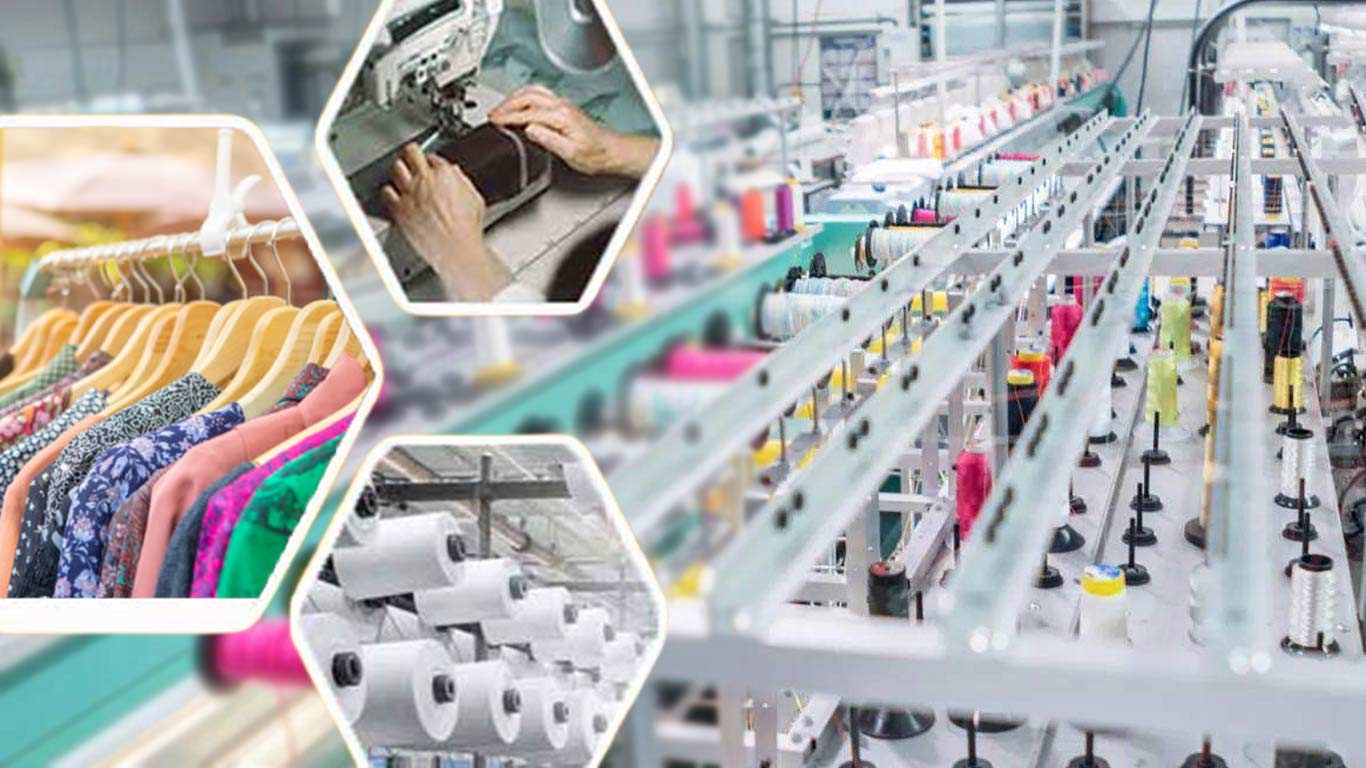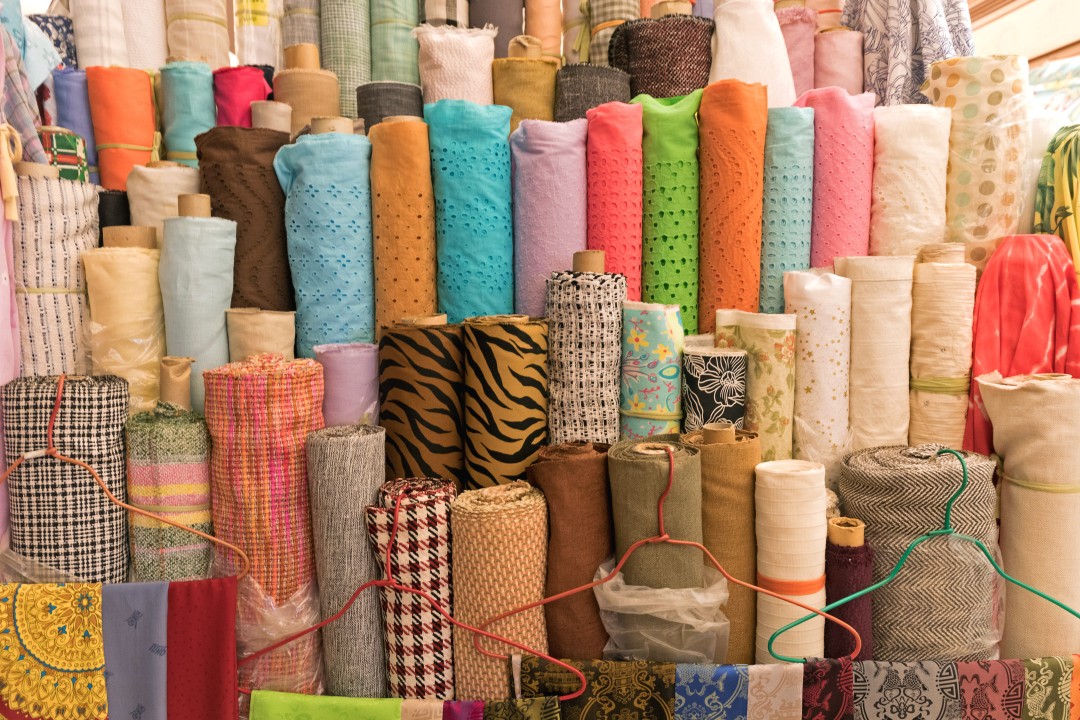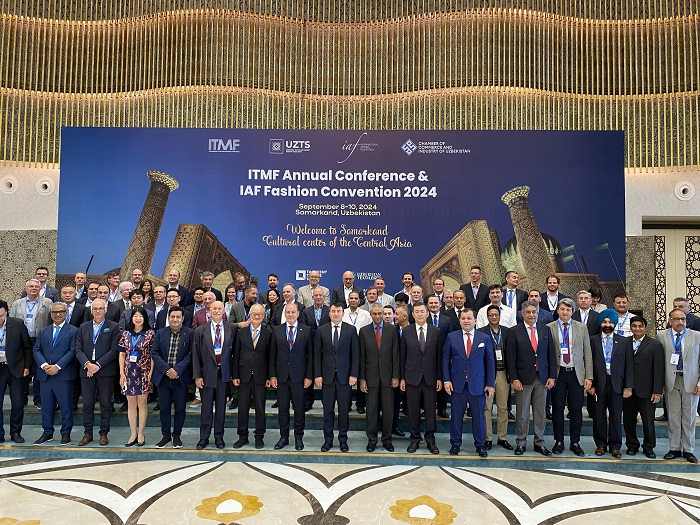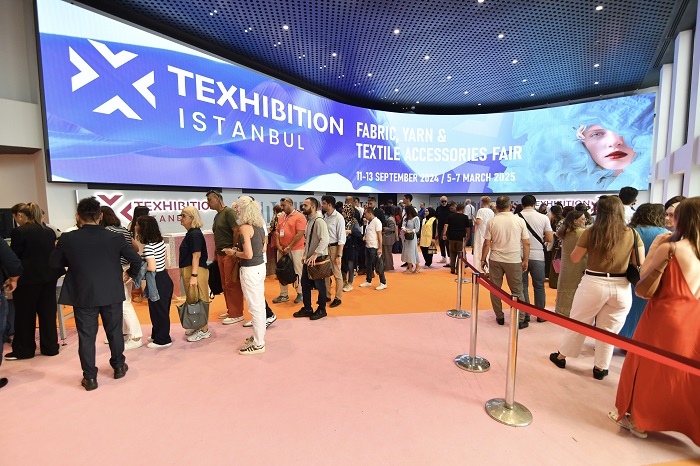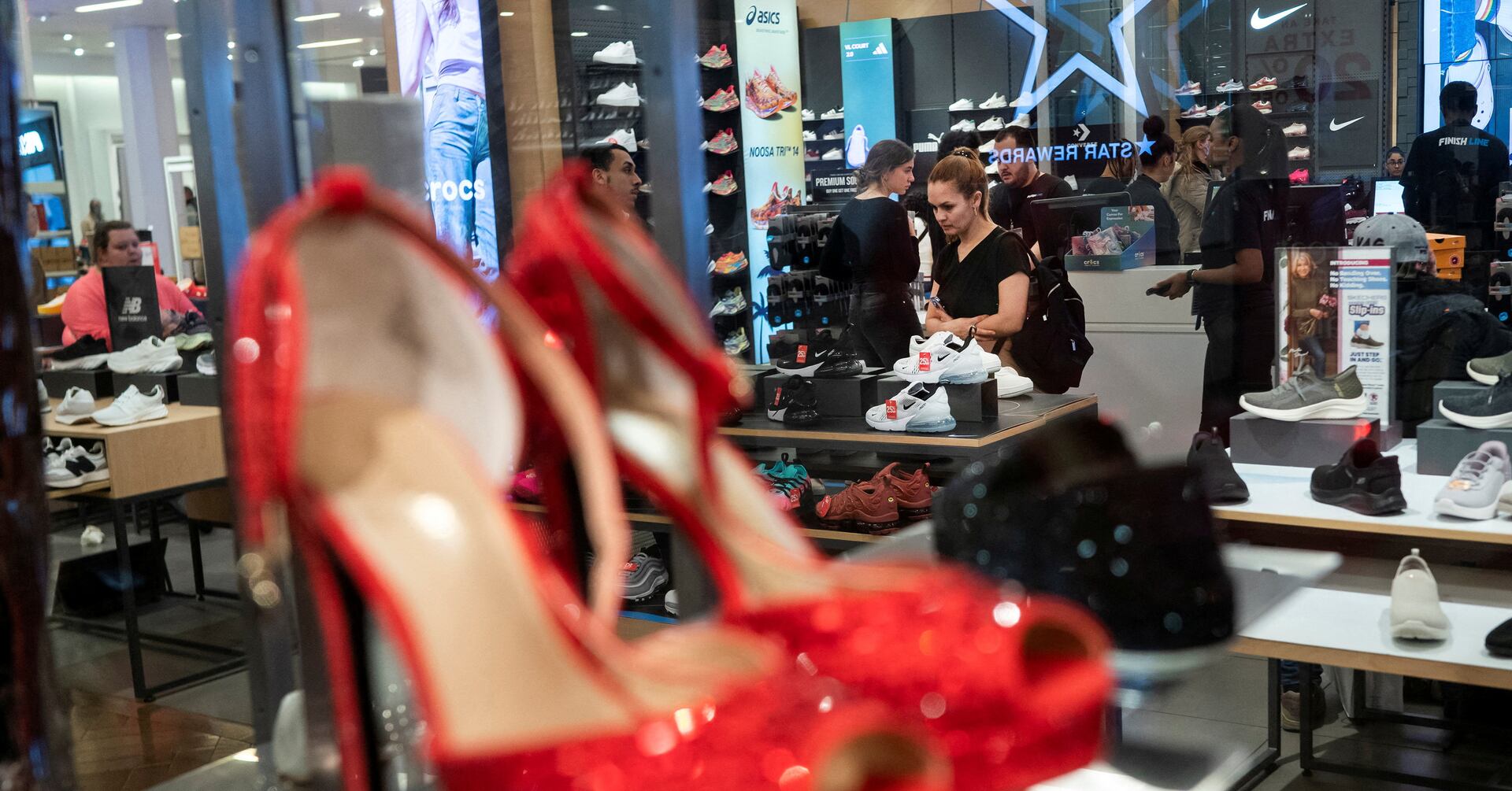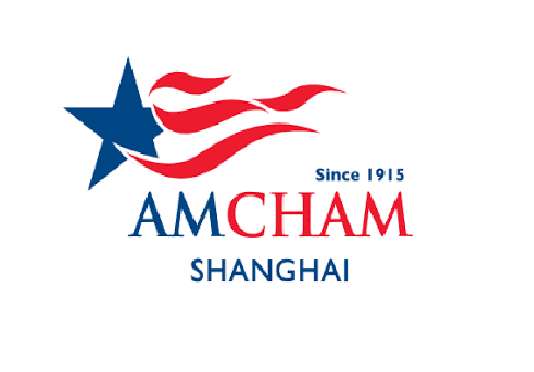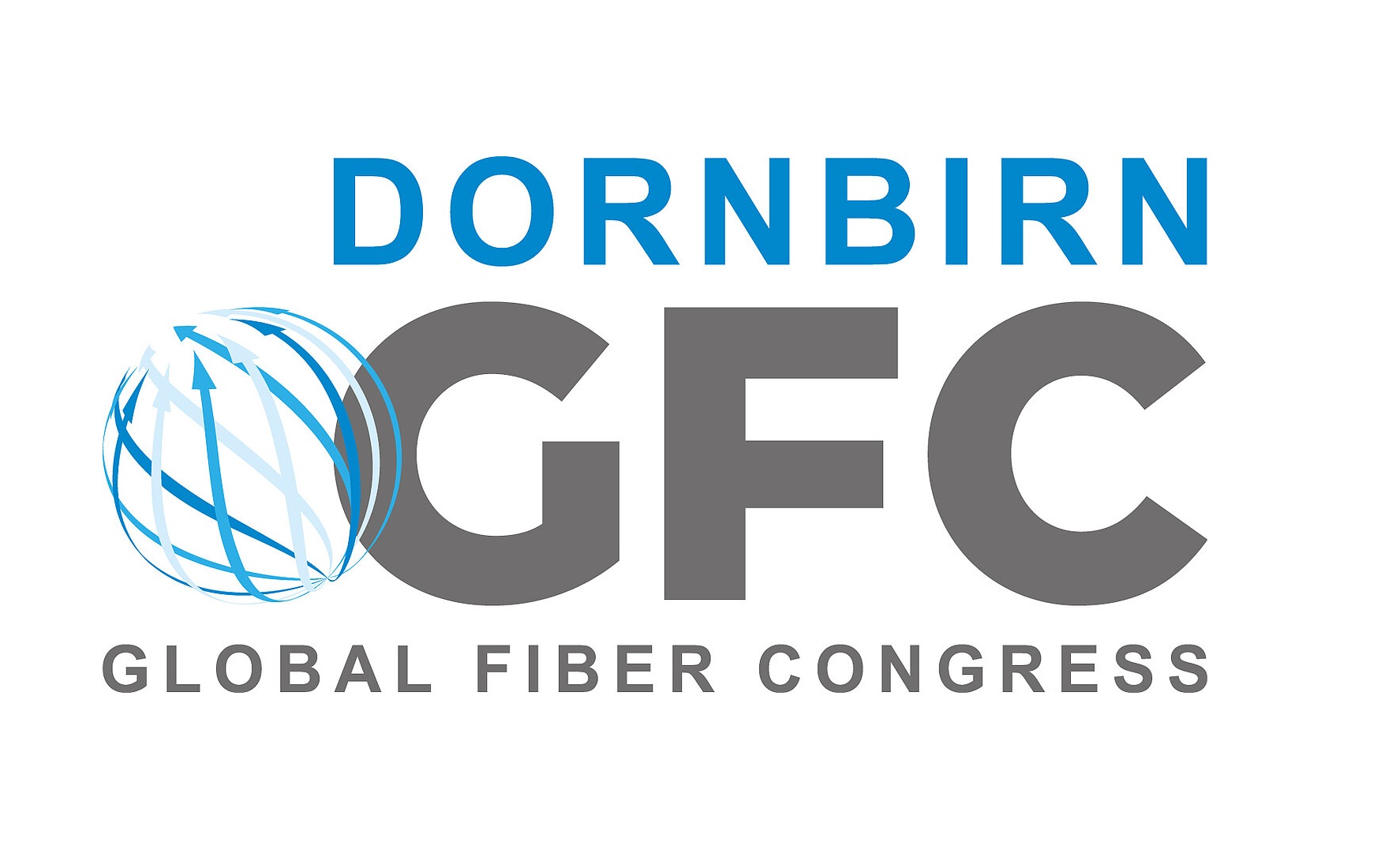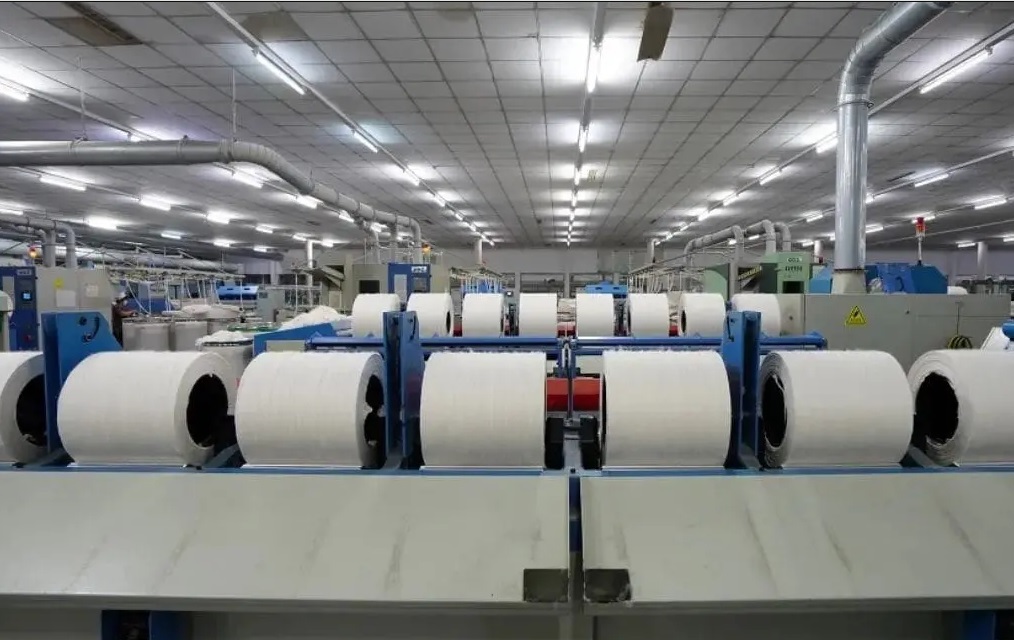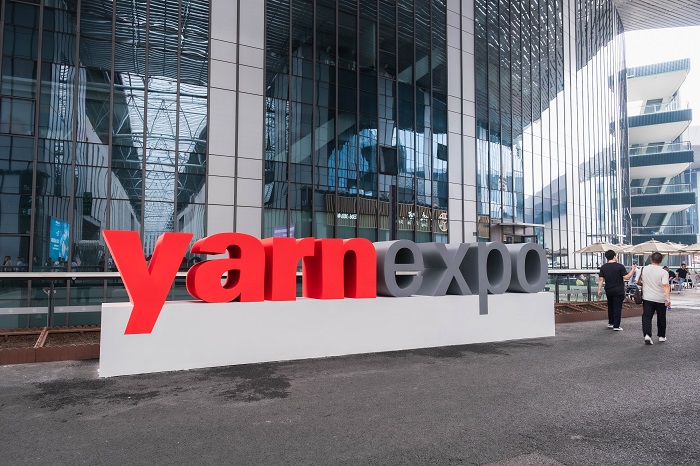FW
Heimtextil exhibitions will be held in Germany from January 14 to 17, 2015. This is the world’s largest trade fair for home and contract textiles. With growing awareness o of sustainable and socially responsible production techniques, the theme this time is sustainability. The fair will offer a forum for companies committed to sustainability and put the focus on products that conserve resources.
There will, for the first time, be a platform dedicated to bodies which award seals of approval and quality marks, to certification organisations and interest groups relating to sustainability issues. Visitors will get free of charge a green directory containing an overview of all exhibitors at the show who espouse the cause of sustainable working practices. Also eco symbols on the stands of certificated exhibitors will provide practical help for visitors in finding those products that have been manufactured to ecological and social standards.
Awards will be given for upcycling. In contrast to recycling, upcycling has, as its goal, the creation of higher value products from waste materials. At least 30 per cent of the materials used must be textile-based. The Theme Park will offer space for a comprehensive display of themes and issues that are relevant to the future. It will focus attention on design-oriented, contemporary aspects.
www.heimtextil.messefrankfurt.com/
Kyrgyzstan has a strong trade relationship with China. Sewing products made in Kyrgyzstan are of high quality and affordably priced. About 70 per cent of the raw materials, fabrics, and accessories for Kyrgyz sewing industry are imported from China. Since China's garment production is no longer seen as profitable, investors from China see Kyrgyzstan as a strategic area for new investments.
Since the beginning of 2014, trade between Kyrgyzstan and China has grown 8.5 per cent compared to the same period of 2013. China has to import textiles, as its own resources are insufficient to meet the demand. Due to the rising tariffs for water and electricity, China has to shift its production to the countries of Southeast Asia. As Kyrgyzstan neighbors China, it intends to export its goods through Kyrgyzstan to the CIS and other countries.
Kyrgyzstan annually produces about 10,000 tons of wool, but only about 30 per cent of the total volume is thin and semi-light wool. The remaining 70 per cent is rough and semi-coarse wool, and it is not in demand. Therefore, Kyrgyzstan is very interested in attracting Chinese technology to refine wool processing.
Export of apparel products is one of the most important sectors of the Kyrgyz economy. Kyrgyz garment producers believe that entry into the Customs Union countries including Kazakhstan, Russia and Belarus will be profitable for them.
A big industrial centre for textiles is coming up at Tayal, on 250 hectares. Turkey is collaborating with Algeria on this venture. It will generate about 25,000 jobs. Tayal will be built in two stages. In the first stage, eight integrated plants, specialized in the manufacturing of denim fabric, netting and other types of fabrics as well as the making of shirts and jeans, will come up over an area of 100 hectares. It will be spread over a period of 36 months, and will see the construction of a business centre, a big training school, houses for the staff, showrooms and spaces for leisure.
In the second stage of the project, on the remaining 150 hectares, about 10 other plants, specialized in the production of household linen, clothing accessories and non-woven fabric, will be constructed. The North African country of Algeria is keen to revive its textile sector. Nearly 4,000 private units in the sector have disappeared due to a policy that favors the import of textiles in the country. The textile sector in Algeria currently only employs 15,000 workers, whereas it employed around 2,00,000 workers 20 years ago. The recovery plan wants the textile sector to register an annual growth rate of 10 per cent.
The Texworld trade fair to be held in Paris from February 9 to 12, 2015 will see exhibitors from the top textile manufacturing countries – China, South Korea, India, Turkey and Pakistan. These countries are underlining their interest in the European market, which, with the US, represents the strongest demand.
India’s Texprocil, the Cotton Textiles Export Promotion Council of India, will have a strong presence at the fair, with almost 35 exhibitors. Texprocil is responsible for promoting Indian cotton producers, but it is also helping silk manufacturers, lace makers and embroiderers to exhibit at Texworld. As it happens cotton has the most demand at Texworld. It represents an aspect of the fair which is undergoing constant development.
Texworld serves as a forum for discussion about the fashion and garment industry for professionals and key industry players. It helps them gain an opportunity to enhance their knowledge about the sector and get the latest and updated information about the latest trends and new products.
Many companies across sectors have confirmed their attendance since the end of the last fair in September. The event will be fully booked soon, with the last confirmations now being issued and new companies chosen by the fair’s selection committee.
https://www.messefrankfurt.com/.../texworld-paris-spring2015.html
Cambodian garment factory workers are fighting for minimum wages though export earnings of the garment sector is about a third of the country’s GDP. Cambodia has one of the lowest minimum wages in the Asia-Pacific. There are more than 6,00,000 garment workers in the country, most of them women. Aside from receiving low wages, workers also suffer poor working conditions.
Some factories have been hit by strikes lasting for as long as a year. Strikes are often violently dispersed by government forces, resulting in the deaths of workers. Learning from this debacle, garment workers decided to revive the campaign for wage increase, this time have directed their appeal to global clothing brands that buy and sub-contract supplies from Cambodia. The campaign was aimed at pressuring global brands such as H&M, Walmart, Levi’s, Gap, Puma, C&A, Adidas and Zara to directly negotiate higher wages for workers with their suppliers.
Garment workers say they are justified in using this strategy. They say global clothing brands have amassed more than enough profit which can be used to for the welfare of workers in Cambodia. However, the government reiterated its position that a substantial wage increase would scare away investors and disrupt local economy.
The Dhaka Apparel Summit 2014 will be held from December 7 to 9, 2014. It will explore ways to frame a sustainable road map to build responsible supply chains in the textile and garment sector. The summit will feature a number of interactive panel sessions which will include the participation of representatives from tge government and partner countries, international organizations, employers, private sector, workers’ representatives, civil society organizations, brand representatives and buyers, academics and media.
Bangladesh’s share in the global market for readymade garments is now five per cent. The summit will discuss ways of reaching the target of 8 per cent by 2021. This will also be the year when Bangladesh celebrate 50th anniversary of its independence. Brands, fashion designers, sourcing executives and experts from home and abroad are expected to share their experiences.
Several panel discussions will be held on the benefit of local apparel makers to be enriched and knowledgeable about the latest apparel technologies and fashion. At the Bangladesh Building and Fire Safety Expo 2014, safety equipment producers will display their products to factory owners.
Bangladesh is devising ways to come out from the negative image due to a series of industrial disasters, including one that killed more than 1,000 people when an eight story building collapsed in early 2013.
The ITMA Future Materials Awards will be held November 26, 2014 in Germany. The awards recognize innovation in the textile industry. Future Materials Award is open to all the end-use sectors for technical textiles as well as materials experts, product developers and designers.
The awards will celebrate winners in 21 categories including best innovation in sportswear, protective, industrial and medical textiles. Awards will also be given for groundbreaking partnership development, best start-up company, and lifetime achievement.
The ceremony will be held in partnership with the Aachen-Dresden International Textiles Conference. This will provide an unparalleled platform to share information, establish partnerships and facilitate networking for companies, suppliers, associations and academics across the entire technical textiles value chain. Delegates to the conference on November 27 and 28 can expect to hear insightful presentations on the latest advances in the fields of textile chemistry, finishing and functionalisation, and textile machinery, manufacturing and composites. Special attention will be given to the topics of composites, membranes and protective textiles.
Future Materials Awards is sponsored by Cordura and Archroma. Since 1960, the technical textiles market has grown five times faster than traditional textiles and is expected to hit 175 billion dollars by 2020. The nonwovens and composite markets are also set to increase significantly. Today, technical textiles use 25 million tonne of fibers, accounting for a third of global production.
www.futurematerialsawards.com/
Pakistan government has decided to suspend gas supplies to industries in Punjab province for three months. Textile units say this decision will push them to the wall and also affect the country’s exports. Pakistan’s exports have been declining since July 2014. Exports in the July-October period of the current fiscal have declined 6.86 per cent against the same period of the last fiscal.
Punjab accounts for half of Pakistan’s textile exports. About half of the production capacity of the textile industry is already dysfunctional due to the energy shortage. The gas plan is expected to lead to loss of export orders since foreign buyers are already diverting their orders to other regional countries. Completion of an export order is a prerequisite to win new orders, but Pakistan’s export- oriented industry is unable to ensure on-time delivery to foreign buyers because of the energy shortage.
Factory owners in Punjab-based textile industry say they will be forced to close down operations in case the government fails to come up with a workable solution and bring the energy cost at par with mills in other provinces. At a time when neighboring countries are growing, the industry in Pakistan is grappling with serious problems.
The Pakistan Textile Summit 2014 is scheduled for November 27. It will see industry representatives from across the globe. The summit will have keynote speeches and presentations from senior level officials from the government, relevant associations and representatives from local and international textile companies.
The objectives of the summit are to promote the country’s industry, showcasing research and development in the sector. It’s aimed at exploring the latest innovations in machinery and technology, providing a networking opportunity for local and international textile industry professionals. This would, in turn, give Pakistan a first-hand look at what the market wants.
Buyers and professionals from within the country and abroad will be present at the event. The Summit will explore the latest innovation in textile machinery and technology, cater a networking opportunity for local and international professionals, attract foreign investment, increase export and address issues such as the energy crisis.
The Summit, which will be attended by prime minister Nawaz Sharif, is being organised by the Ministry of Textiles in collaboration with the All Pakistan Textile Mills Association, All Pakistan Textile Processing Mills Association, Pakistan Textile Exporters Association and the Pakistan Readymade Garments Manufacturers & Exporters Association.
The textile industry is the mainstay of Pakistan’s economy. It contributes 8.5 per cent to GDP and employs over 40 per cent of the manufacturing sector workforce.
The textile industry in Indonesia is growing steadily. The country wants to become the number one in textile exports by overtaking China, which is shifting its economy from textiles to services. By 2030, Indonesia wants to raise its contribution to global textile exports from 1.8 to 5 per cent.
Domestic sales are forecast to increase by seven per cent this year, following a 10 per cent decline in 2012 to 2013. There is strong domestic demand for Indonesian textile products, despite competition from lower priced, high quality imported textile and textile products. Indonesia currently ranks ninth in global textiles exports. The industry, combining textiles, leather goods and footwear, is expected to contribute 10.7 per cent of non-oil and gas exports in 2014. Indonesia has expressed interest in joining the multilateral Trans-Pacific Partnership, which would open opportunities for higher Indonesian textile exports to Europe.
However, the industry faces tough competition from players in Southeast Asia that have lower production costs and cheaper labor. Vietnam, for example, has managed to carve out a 3.3 per cent share of global textiles and garments exports. Indonesia’s infrastructure costs are high compared to Vietnam and Cambodia. Electricity now accounts for up to 35 per cent of total production costs for textile companies.

